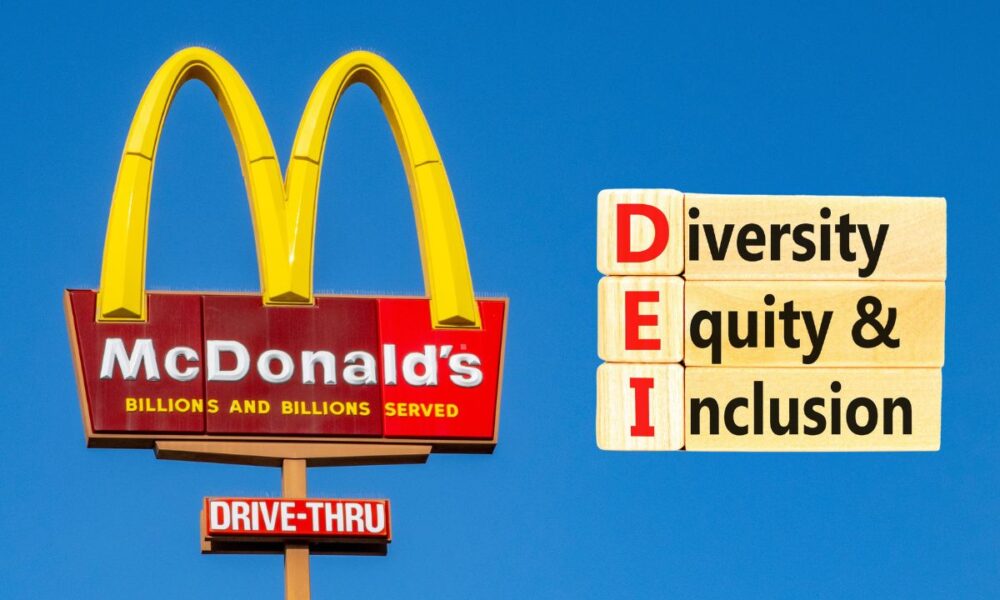A new boycott campaign targeting McDonald’s is gaining steam across the country — and it’s being driven by the company’s own former operators.
McDonald’s faces mounting pressure as nationwide boycott expands, fueled by former Black franchisees and activists accusing the company of discrimination and corporate backpedaling.
More than 40 former McDonald’s franchise owners across a dozen states have announced their support for a growing nationwide boycott of the fast-food giant, according to a June 24th report by Newsweek.
The former operators, who are suing McDonald’s for alleged racial discrimination, said they would back a broader campaign organized by The People’s Union USA, which has already included McDonald’s in its ongoing “economic blackout.” Their announcement came through the law firm Loevy & Loevy, which is representing the plaintiffs in a civil rights lawsuit first filed in 2023.
Lawsuit, Diversity Reversal Fuel Frustration
The group cited the company’s decision earlier this year to roll back certain diversity, equity, and inclusion programs—specifically the removal of “aspirational representation goals” and a supplier DEI pledge—in favor of what the company called “a more integrated discussion” about inclusion tied to performance.
“The McDonald’s corporation’s recent abandonment of its diversity initiatives came as no surprise to us,” the group said in a statement. The former franchisees allege they were steered into underperforming markets and denied the same support provided to white operators. They are calling for sustained pressure “until [McDonald’s] keep their promises, renew their commitment to the Black community, and finally do right by the Black owners and operators like us.”
Company representatives rejected the allegations as a “deliberate distortion of facts” and a “publicity stunt.” In its statement to Newsweek, McDonald’s spokesmen said the plaintiffs’ claims had been dismissed before and did not reflect the company’s “record of investment in its franchisees’ success.”
“There are hundreds of Black franchisees in the U.S. who are as successful as all our franchisees, because they operate great restaurants and support their local communities,” the company said. “We provide access to opportunities to help all franchisees thrive and have developed the most diverse franchisee pipeline in our history.”
The new wave of opposition follows months of mounting criticism from labor activists and anti-corporate groups. John Schwarz, founder of The People’s Union USA, posted a detailed list of grievances against McDonald’s on Instagram, accusing the company of price gouging, exploiting tax loopholes, and making “false DEI promises.” Schwarz said, “They prioritize profit over people, community, and truth. We are the economy.”
Do Boycotts Actually Work?
Still, experts say it is unclear whether such campaigns meaningfully hurt companies at the bottom line.
Research by the Institute for Policy Research at Northwestern University suggests that most boycotts do not significantly dent sales. “The typical boycott doesn’t have much impact on sales revenue,” IPR associate Brayden King said on the IPR website while analyzing a 2017 study on the subject.
“Even people who publicly denounce a company might still purchase that company’s products,” the IPR article said. “Plus, the people boycotting a company might not be its target consumers.”
Rather than changing consumer habits, the most successful boycotts often pressure corporations by damaging their public image. King indicated that the number one predictor of a boycott’s effectiveness is the amount of media coverage it generates and that public perception, not lost sales, is often the greater threat.
However, with companies now regularly facing backlash from both sides of the political spectrum, King questioned whether public fatigue might blunt the impact of any single protest. “One has to wonder if the effect of activism targeting companies is becoming diluted,” he said.
Boycotts with Bite
That concern hasn’t stopped activists from organizing a tightly coordinated calendar of boycotts. The current McDonald’s campaign is scheduled to continue through the end of June, with The People’s Union USA planning additional actions around Independence Day and a broader month of action in July targeting Amazon, Starbucks, and Home Depot. McDonald’s, Walmart, and Lowe’s will reportedly be targeted in August.
Recent history offers a mixed outlook for what’s ahead. In one of the most closely watched boycotts of the past decade, Bud Light experienced a massive customer backlash following its 2023 partnership with “transgender” influencer Dylan Mulvaney. Sales dropped nearly 30 percent year-over-year, according to Fox Business.
“They haven’t at all [recovered],” former Anheuser-Busch President of Operations Anson Frericks said in February. “They lost 30 percent of their customers—millions of customers, billions of dollars of shareholder value.”
Despite new ads and rebranding attempts, Bud Light continues to struggle. Frericks said the company hasn’t clarified its vision and remains caught between conflicting cultural signals. “Until the company really comes back and says clearly what Bud Light is going to be, I don’t know if any of their loyal customers are going to come back.”
Whether McDonald’s will face a similar reckoning remains to be seen. For now, its critics say the pressure campaign is only beginning. Kenneth Manning, one of the lead plaintiffs in the 2023 lawsuit, said he is still seeking accountability.
“I invested everything I had—money, time, faith—in the McDonald’s system,” Manning said in a recent video, per Newsweek. “But what I didn’t know when I started is that the rules aren’t the same for everyone.”
What’s Next:
-
Boycott scheduled through end of June
-
Independence Day protests planned
-
Amazon, Starbucks, and Home Depot targeted in July
-
McDonald’s, Walmart, and Lowe’s in August


